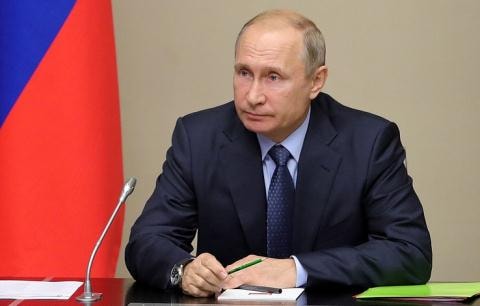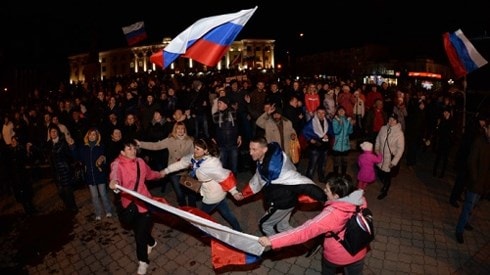Russia has an additional holiday to celebrate the annexation of Crimea
President Putin has signed a bill on choosing a holiday to celebrate the annexation of the Crimean peninsula to the Russian Federation.
Russia's TASS news agency reported on August 3 that a bill designed to ensure that "residents of new regions of Russia, including Crimean Tatars, are provided with rights equivalent to those of other subjects of the Russian Federation" was signed into law by Russian President Vladimir Putin.
 |
| Russian President Vladimir Putin. |
The new law affirms that April 19 will be considered a major Russian holiday - the anniversary of the annexation of Crimea, Taman and Kuban to the Russian Federation (1783).
The bill was previously passed by the Federation Council and the State Duma of Russia on July 24 and 28.
The content of which stated: "On April 19, 1783, the Crimean peninsula was protected by the Russian Empire at the request of the war-torn people, becoming a legal form of the annexation of Crimea to Russia".
"The new Russian holiday affirms the continuity of the annexation of Crimea and Sevastopol as part of the Russian state. It will allow to focus on the landmark decisions of Russia, namely the accession of Crimea, Taman and Kuban to the Russian Federation and as part of the Russian Empire. The presence of Empress Catherine the Great at the event also shows the importance of this annexation.
In addition, it will demonstrate the historical legitimacy and legality of the referendum on Crimea's unification with Russia," the law states.
 |
| People in the capital Simferopol celebrate the annexation with Russia. Photo: RIA. |
According to TASS, on April 19, 1783, Empress Catherine the Great signed a manifesto on the incorporation of Crimea, the Taman Peninsula and the Kuban River region into the territory of the Russian Empire. From then until 1954, Crimea was an entity of the Russian state, whether Russia was a powerful empire or a republic of the Soviet Union.
On February 19, 1954, at the proposal of General Secretary of the Communist Party of the Soviet Union Nikita Khrushchev, Crimea province was cut and transferred to the Ukrainian Soviet Socialist Republic as a "gift" of friendship.
After the collapse of the Soviet Union, the political forces in power in Ukraine have increasingly shown themselves to be out of step with Moscow because of their "desire to move west", wanting to integrate Ukraine into the Euro-Atlantic space as soon as possible. The opposition of the people in the Crimean peninsula to the overthrow of the government of Ukrainian President Viktor Yanukovych in a street revolution led them to hold a referendum allowing them to simultaneously separate from Ukraine and request annexation to Russia.
On March 18, 2014, representatives of the independent Republic of Crimea signed the Treaty on joining the Russian Federation and President Putin, representing the Russian state, announced the acceptance of Crimea and officially established sovereignty over this strategic peninsula.
On July 28, 2016, Russian President Vladimir Putin signed a decree to merge Crimea and the Southern Federal District into the Russian Federal District. This event is considered to end the transitional period of the Crimean Region. And recently, on May 15, 2018, the Russian government inaugurated the Kerch Bridge, connecting the Crimean Peninsula with the North Caucasus region, helping to unify Crimea and Russia, thereby changing the meaning and geopolitical-geostrategic value of Crimea.
The choice of the date to commemorate the annexation of the Crimean peninsula to the Russian Empire in 1783 shows the length of history and historical significance of this land, which, despite experiencing ups and downs in ownership, eventually returned to Russia.

